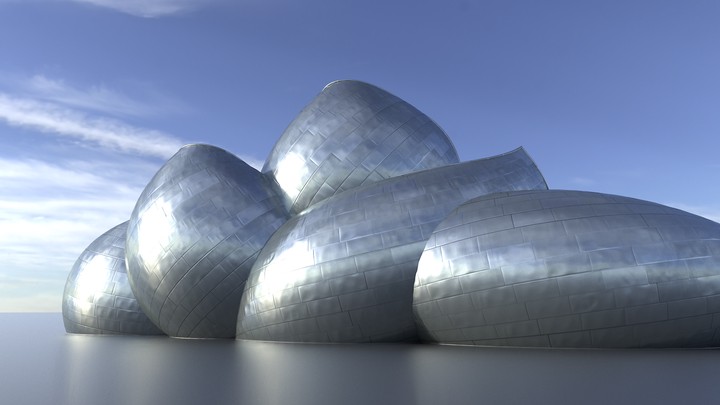Architectural freeform surfaces designed for cost-effective paneling through mold re-use

Abstract
The realization of architectural freeform skins is a big challenge, in particular if one desires a smooth appearance and uses curved panels. These have to be brought into shape by special manufacturing technologies, most of which require the costly production of molds. Previous approaches to mold re-use relied on optimization algorithms which play with the available tolerances and allowed deviations from the reference geometry. One aims at a good trade-off between fabrication cost and a visual appearance which comes close to the original design intent. For general freeform surfaces, there may be no other ways to computationally solve the paneling problem. However, we will show in this paper that there is a rich class of surfaces which very much look like freeform shapes, but have significant advantages over totally unrestricted freeform geometry. These surfaces are known as Weingarten surfaces. They are characterized by a relation between their principal curvatures, leading to a just one-parametric family of curvature elements and thus local surface shapes. This allows one to fabricate N panels with a number of molds which is roughly just √N. Moreover, if the panels are fabricated from material which is not rigid after panel production, one can exploit the allowed deformations through bending and further increase the accessible shape variety or reduce the number of molds even more. We also provide an overview of computational techniques for the computation of Weingarten surfaces and their deformation through bending and illustrate the approach through a number of architectural case studies.
Supplementary notes can be added here, including code and math.